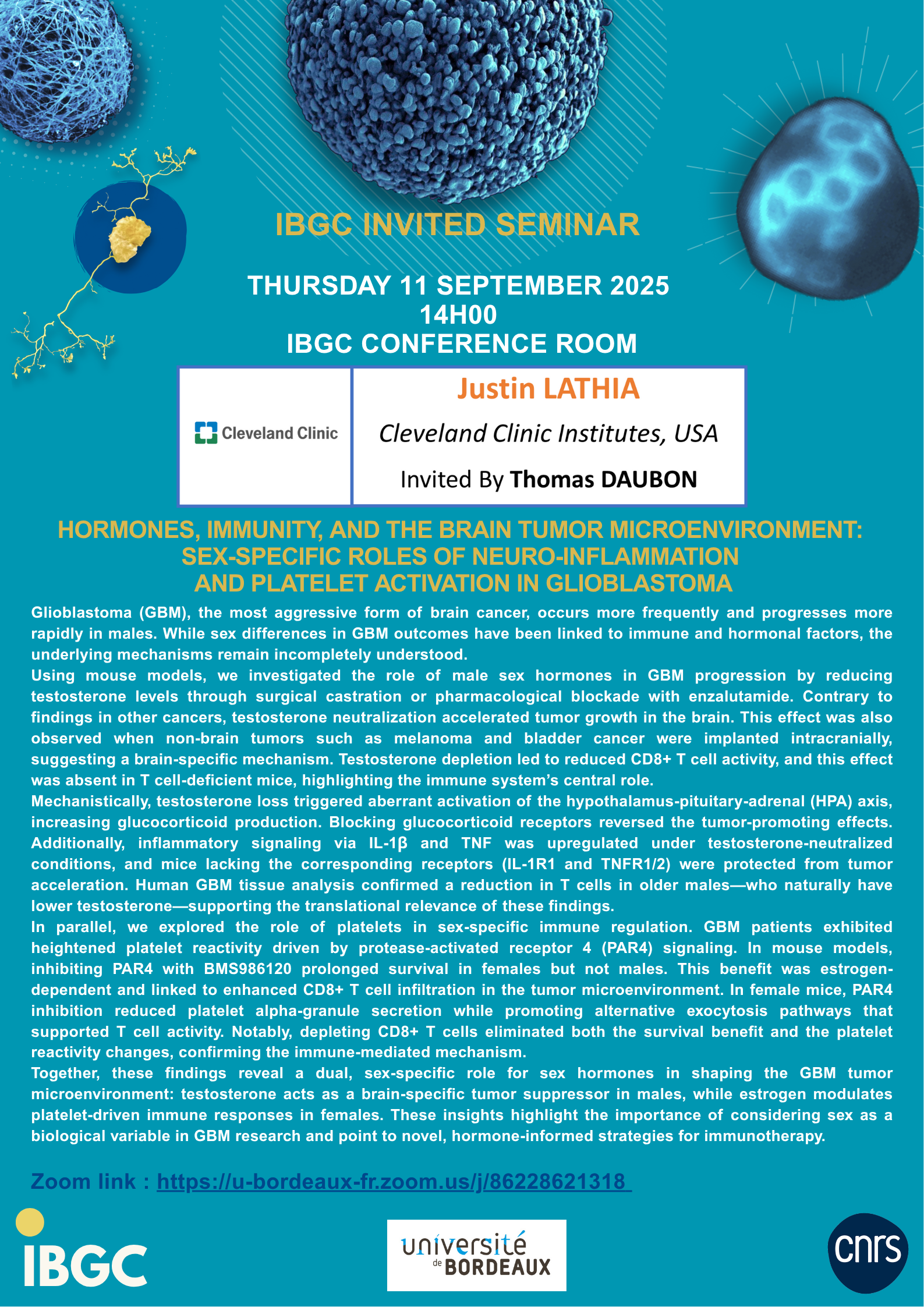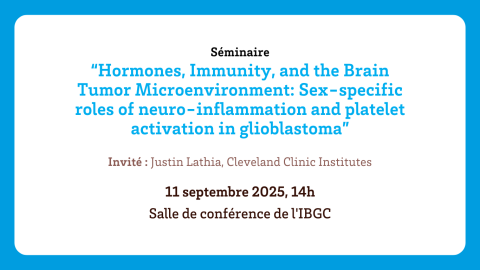Séminaire disponible en visio via zoom
- Hormones, Immunity, and the Brain Tumor Microenvironment: Sex-specific roles of neuro-inflammation and platelet activation in glioblastoma
Glioblastoma (GBM), the most aggressive form of brain cancer, occurs more frequently and progresses more rapidly in males. While sex differences in GBM outcomes have been linked to immune and hormonal factors, the underlying mechanisms remain incompletely understood. Using mouse models, we investigated the role of male sex hormones in GBM progression by reducing testosterone levels through surgical castration or pharmacological blockade with enzalutamide. Contrary to findings in other cancers, testosterone neutralization accelerated tumor growth in the brain. This effect was also observed when non-brain tumors such as melanoma and bladder cancer were implanted intracranially, suggesting a brain-specific mechanism. Testosterone depletion led to reduced CD8+ T cell activity, and this effect was absent in T cell-deficient mice, highlighting the immune system’s central role.
Mechanistically, testosterone loss triggered aberrant activation of the hypothalamus-pituitary-adrenal (HPA) axis, increasing glucocorticoid production. Blocking glucocorticoid receptors reversed the tumor-promoting effects. Additionally, inflammatory signaling via IL-1β and TNF was upregulated under testosterone-neutralized conditions, and mice lacking the corresponding receptors (IL-1R1 and TNFR1/2) were protected from tumor acceleration. Human GBM tissue analysis confirmed a reduction in T cells in older males—who naturally have lower testosterone—supporting the translational relevance of these findings.
In parallel, we explored the role of platelets in sex-specific immune regulation. GBM patients exhibited heightened platelet reactivity driven by protease-activated receptor 4 (PAR4) signaling. In mouse models, inhibiting PAR4 with BMS986120 prolonged survival in females but not males. This benefit was estrogen-dependent and linked to enhanced CD8+ T cell infiltration in the tumor microenvironment. In female mice, PAR4 inhibition reduced platelet alpha-granule secretion while promoting alternative exocytosis pathways that supported T cell activity. Notably, depleting CD8+ T cells eliminated both the survival benefit and the platelet reactivity changes, confirming the immune-mediated mechanism.
Together, these findings reveal a dual, sex-specific role for sex hormones in shaping the GBM tumor microenvironment: testosterone acts as a brain-specific tumor suppressor in males, while estrogen modulates platelet-driven immune responses in females. These insights highlight the importance of considering sex as a biological variable in GBM research and point to novel, hormone-informed strategies for immunotherapy.



